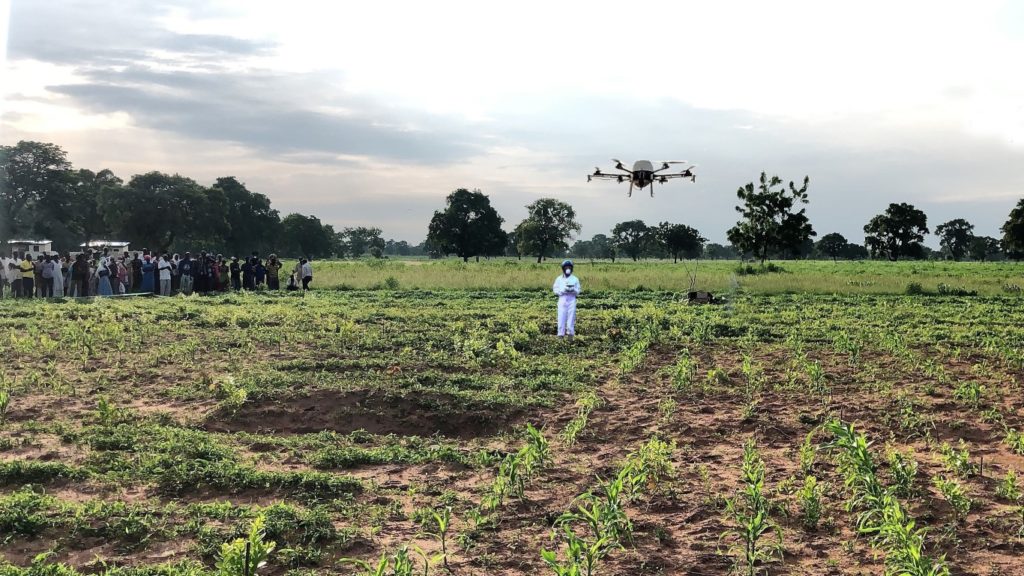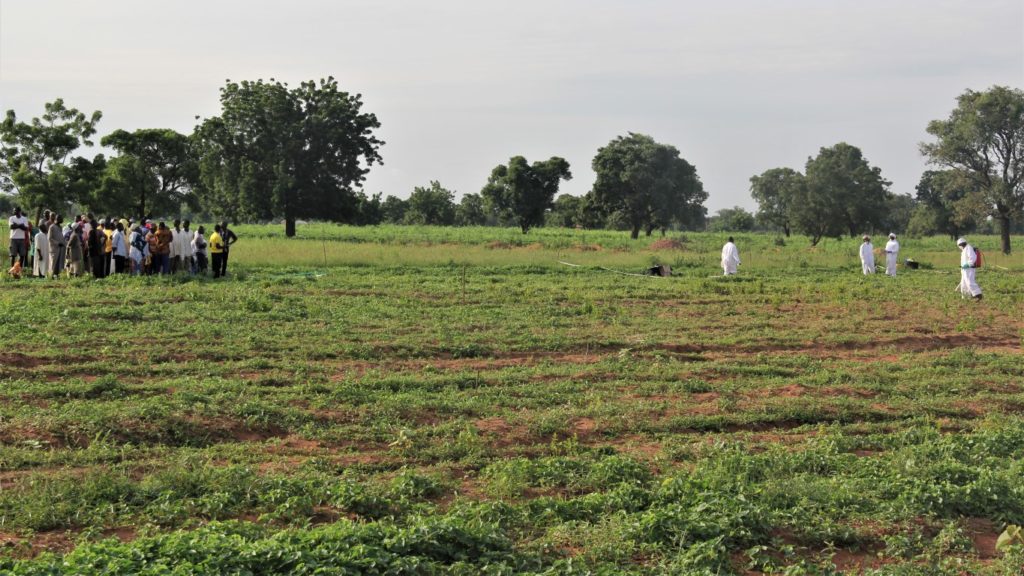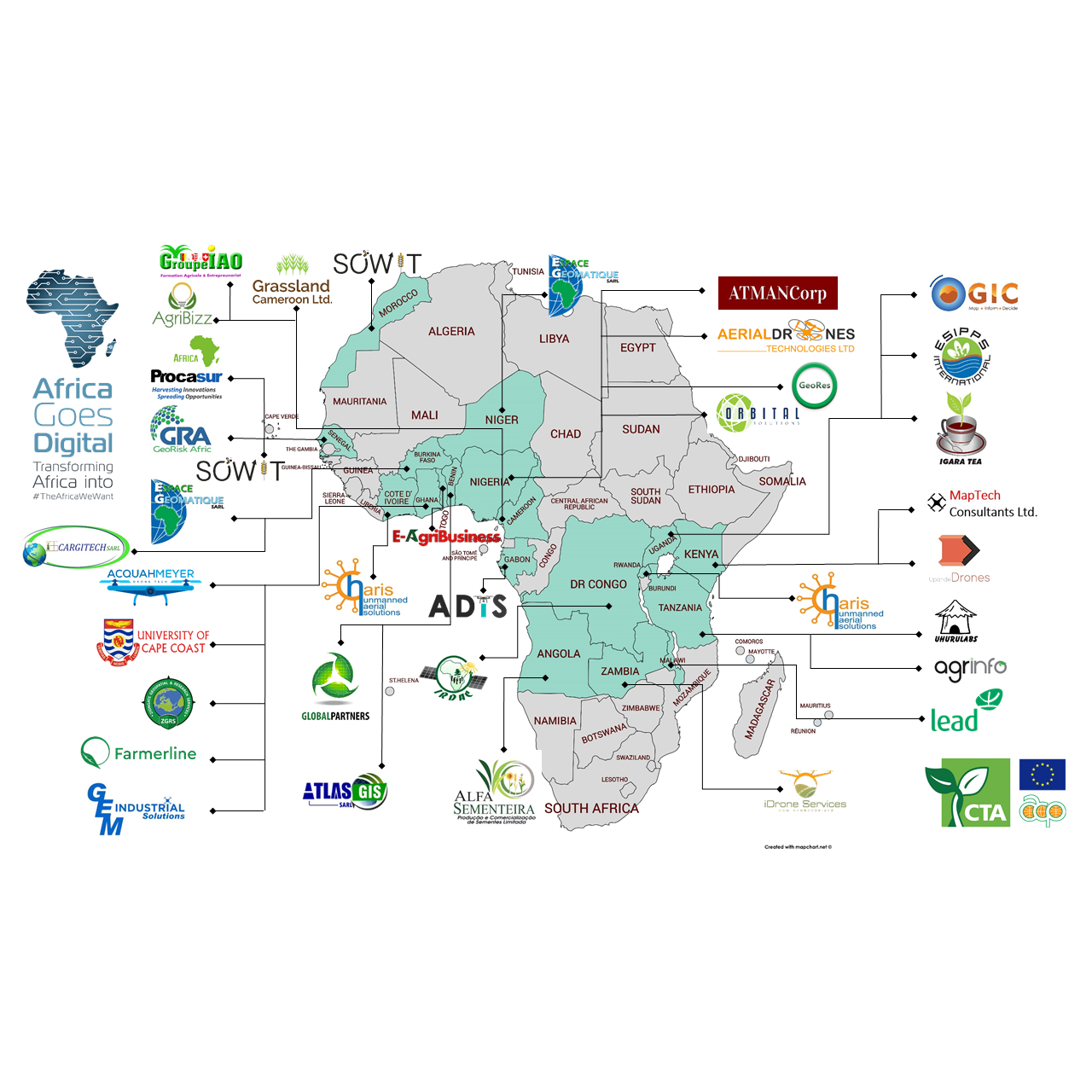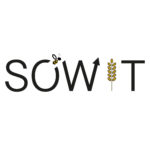Since fall armyworm (Spodoptera frugiperda) was detected in West Africa in 2016, this voracious pest has continued to affect a large variety of crops and threaten food security across a number of countries. Northern Ghana, for instance, has been particularly hard hit by its invasions, and maize yields in the region could be halved if not controlled. To combat fall armyworm (FAW) infestations, smallholder farmers have adopted pesticide application via knapsacks, as advised by the government agencies, as well as cultural and traditional control methods (such as hand crushing of the caterpillars and intercropping maize with FAW-repelling plants). However, good control requires advanced agronomic skills (e.g. knowledge of the correct larvae stage at which to apply the treatment) and effective application techniques.

In 2019, a new, efficient FAW insecticide was released on to the Ghanaian market by the Bayer CropScience Division (Bayer), in time for the maize growing season. To enhance the safe and efficient application of this pesticide, the potential use of ‘new application technologies’ such as unmanned aerial vehicles (UAVs), seems promising. However, acceptance of such an innovative technology is not just a question of increasing awareness, but is also influenced by other factors, including cost, alignment with traditional FAW control practices, and technology perceptions.
Download the full Technical Report (56 pages, 6MB) published by the Technical Centre for Agricultural and Rural Cooperation ACP-EU (CTA)
On-farm trials and observations
In partnership with CTA, the Department of Agricultural Economics and Extension at the University of Cape Coast (DAEE-UCC), Acquahmeyer Drone Tech Ltd (drone service provider) and the Savanna Agricultural Research Institute (SARI), Bayer conducted a study to trial the use of UAV-applied pesticide for FAW control in maize. The study involved three farmer field days held in the Mion, Tolon and West Mamprusi districts of Northern Ghana in June and September 2019, which were attended by 400 local farmers.
In-depth interviews, field observations and focus group discussions held with the farmers provided valuable insights into factors that could affect technology uptake and the market potential of UAV-applied pesticide to combat FAW infestations. Specifically, discussions covered farmers’ preferred FAW control practices; perceptions on the use of drone-applied pesticide for FAW control; farmers’ willingness to pay for the technology; and factors associated with farmers’ inclination to adopt the innovation. A benefit-cost comparative analysis was also carried out to determine the benefits for farmers in adopting the new technology over knapsack spraying for FAW control.
Increasing UAV-based services availability and uptake
The study revealed that the farmers preferred to use synthetic pesticides over other FAW control options, including cultural practices and biological control methods.

During the field days, when compared to knapsack spraying, the farmers observed notable benefits of the UAV-based applications, reporting that the UAV could accurately apply product to kill the caterpillar easily, at speed, and with limited or no wastage of the product. As a result, they perceived UAV use to be effective, simple and efficient. This may account for why the farmers demonstrated high inclination to use UAVs for FAW control. This preference can be quantified based on five key variables: attitude towards use of the digital technology, result demonstrability of the technology, perceived usefulness, perceived enjoyment, and voluntariness to use it.
An overwhelming majority of the farmers (94.7%) also indicated their willingness to pay for the UAV-based services in the study area, which could lead to high adoption rates if an enabling environment is established for use and adoption of the new technology. The study therefore recommends that the local agricultural department, with Acquahmeyer Drone Technology Ltd and/or other qualified service providers, ensure that the UAV-based services are available for use at individual smallholdings to sustain farmers’ interest. Further, it is recommended that DAEE-UCC partners with Acquahmeyer Drone Technology Ltd to train their agricultural graduates to set up agri-tech enterprises to provide UAV-based services in all districts of Ghana.
Such activities could also help to spread the message to farmers that UAV pesticide application is less costly than using knapsacks in the long run, as indicated by the results of the benefit-cost comparative analysis. With such information, farmers can make more informed investment decisions in controlling pests on their crops.
Nation-wide control and way forward
The use of UAVs to apply insecticides to crops could make a valuable contribution in minimising the negative impacts of FAW on productivity and food security. To create awareness about the value and efficiency of using UAVs for pesticide spraying, and enhancing agricultural productivity, the results of this study should be shared widely among the relevant stakeholders. In addition, the technology needs to be showcased across the country as a convenient solution for controlling the invasive species.







